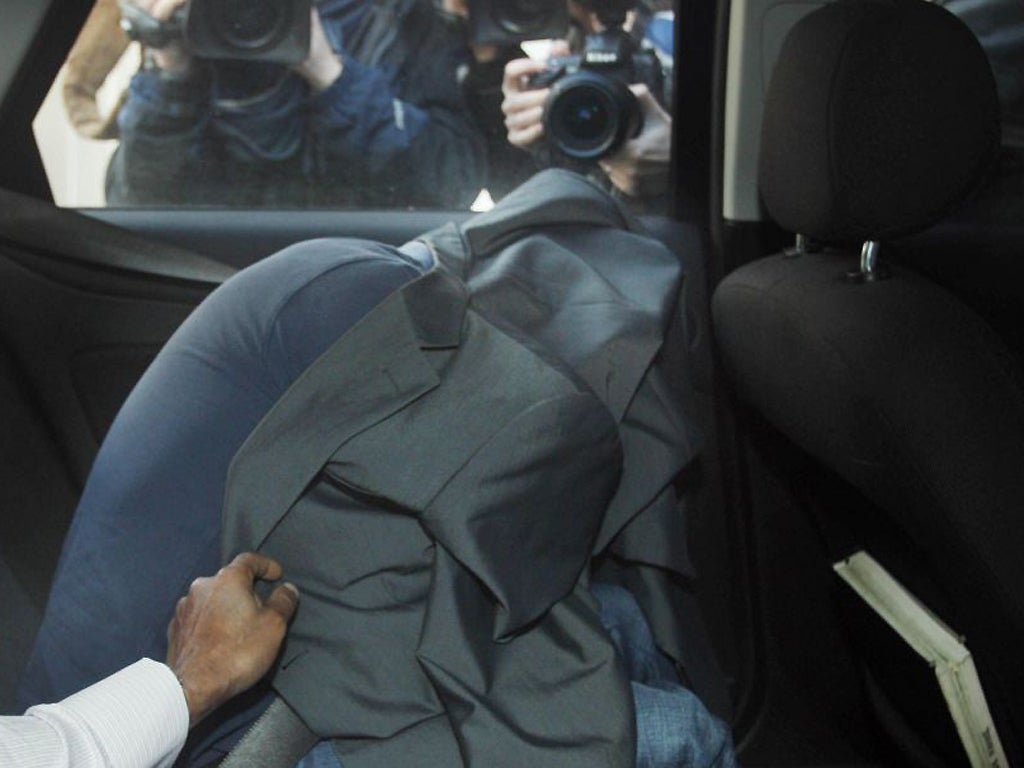Royal Navy submariner Edward Devenney remanded in custody after admitting meeting 'Russian secret agents' to discuss UK military intelligence

A Royal Navy submariner who tried to pass on secret information to Russian agents has been remanded in custody after admitting his crime.
Petty Officer Edward Devenney, 30, was caught in a MI5 sting after trying to hand over classified information that could be useful to the enemy, the Old Bailey heard today.
The court heard how the non-commissioned officer had been willing to betray the movements of Royal Navy crews by passing on code breaking technology as well as operational details relating to HMS Trafalgar and the sailing dates of two nuclear submarines.
He contacted a foreign embassy to try and pass the details of the programmes used to encrypt secret information to the Russians. But the two people he eventually met were British Security Service officers posing as foreign agents and covertly filming the encounter.
During a brief hearing Devenney, spoke only to confirm his name and enter pleas. The sailor from Northern Ireland pleaded guilty to collecting information for a purpose prejudicial to the safety or interests of the state, which could be useful to an enemy, between 18 November last year and 7 March this year.
He also admitted a second charge that as a petty officer he “wilfully misconducted himself” by communicating with a foreign power with the intention of harming the Royal Navy.
But he denied a count of communicating information to another person, contrary to the Official Secrets Act, which prosecutor Mark Dennis QC said was now reflected in the misconduct charge.
The barrister told the court Devenney accepted that he attempted to pass on secrets of the subs' movements to the two men he thought were Russian secret agents.
'The subject matter of count two [the communicating information charge] is information which he gave during a conversation with two men he believed were Russian Secret Service agents,' he added. 'Firstly, it relates to an operation that was undertaken by a submarine, HMS Trafalgar, and secondly it relates to the dates for the coming and going of two nuclear submarines during the course of this year.”
While Devenney was caught before any harm could be done, Mr Dennis said: “One of the issues is the damage or potential damage - and realistically it is potential damage -caused to the national interest.”
Devenney had a promising career in the Navy, had been sponsored through a degree in electronic engineering and passed exams required for a commissioned officer’s course.
Yet before his arrest he was obsessively posting as many as 40 tweets a day on his Twitter page, revealing details on everything from British nuclear capability to his operational duties.
On January 26 he wrote: “Bomb Iran? Am not bothered, but I'll probably be in the submarine that fires the missiles!” A week earlier he posted: “Drop Trident? I'm on a V boat at the mo. Capability is absolutely essential to British military influence” before revealing during a public discussion with another Twitter user that the electronic warfare (EW) system aboard his submarine was broken.
Mr Justice Saunders remanded him in custody until a fuller hearing of the case on 12 December when he will be sentenced.
While the judge said he hoped as much of the evidence as possible could be heard in open court he warned that some of the hearing might have to be behind closed doors.
Subscribe to Independent Premium to bookmark this article
Want to bookmark your favourite articles and stories to read or reference later? Start your Independent Premium subscription today.
